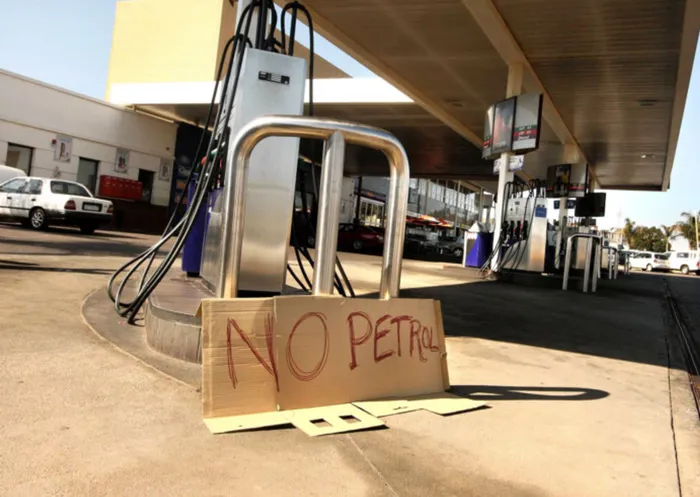
This garage in Langlaagte west of Johannesburg is one of the many stations hit by the ongoing strike. Picture: Simphiwe Mbokazi. This garage in Langlaagte west of Johannesburg is one of the many stations hit by the ongoing strike. Picture: Simphiwe Mbokazi.
Don’t panic. That’s the message from retailers as the fuel strike continues today.
“People must avoid panic buying,” said SA Petroleum Industry Association executive director Fani Tshifularo.
“We know there’s the temptation to keep topping up, but it’s not helping the situation. Some people are even bringing empty drums and bottles to buy extra petrol, which is just dangerous.”
He advised drivers to keep calm and refuel only when “that red petrol light goes on”.
According to the Fuel Retailers’ Association (FRA), the fuel situation remained critical in Gauteng yesterday, with over 200 service stations running dry.
“Over the weekend, there were no strikes, so we could make more deliveries,” FRA CEO Reggie Sibiya said.
“We were hoping we’d be able to make up for the backlog but that didn’t happen. We still have dry pumps.”
And he agreed that consumers rushing to top up their tanks and hauling containers to the pumps were only making things worse.
“You’re just putting pressure on the stations and making them dry up quicker than they usually would,” said Sibiya.
Meanwhile, bus services across the country are in jeopardy as the petroleum sector strike enters its second week.
The Southern African Bus Operators Association (Saboa) has warned that if the strike continues, many bus operators could be forced to suspend services.
Saboa spokesman Eric Cornelius yesterday said the strike was having a serious impact on bus operators, especially those operators in Gauteng.
Cornelius said delayed and infrequent deliveries of fuel to bus operators are being experienced and have resulted in a substantial drop in the fuel reserves of many bus operators.
“If these bus services are suspended, it could have a major impact on the economy as many businesses could decide to close down for the duration of the strike because their employees are not able to come to work.
“It could also have a negative effect on learners who return to school after the July holidays, only to find they are not able to get to school,” he said.
Meanwhile, a light at the end of the highway flickered faintly yesterday evening when employers tabled an offer of between 8 percent and 10 percent, depending on workers’ employment levels – still below the 11 to 13 percent unions are demanding, but an improvement on previous offers. - Pretoria News
